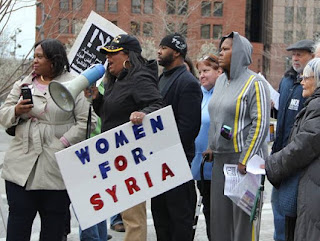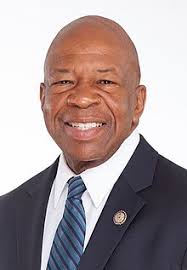
 Pictured is the Rev. Lorenzo Norris, senior pastor of Concord Baptist Church in Cleveland and president and CEO of the Cleveland Clergy Alliance
Pictured is the Rev. Lorenzo Norris, senior pastor of Concord Baptist Church in Cleveland and president and CEO of the Cleveland Clergy Alliance
Clevelandurbannews.com and Kathywraycolemanonlinenewsblog.com, Ohio's most read Black digital newspaper and Black blog. Tel: (216) 659-0473 and Email: editor@clevelandurbannews.com.
By Kathy Wray Coleman, associate publisher, editor-in-chief
CLEVELANDURBANNEWS.COM-CLEVELAND, Ohio-The Cleveland Cavaliers and the Clergy Alliance, a non-profit faith -based group of some 35 churches that is led by the Rev. Lorenzo Norris of Concord Baptist Church in Cleveland, invites greater Cleveland seniors 60 and older and adults 18 and older with a disability as their special guests for the Cleveland Cavaliers versus Chicago Bulls game at Rocket Mortgage FieldHouse in Cleveland at 7 pm Wed, Oct 30, a free event for seniors and those with disabilities.
For free tickets for seniors and adults with a disability contact Terri Johnson, community outreach administrator for of the Cleveland Clergy Alliance by phone at (440) 487-5692 or (216) 232-3400, or via email at terri.johnson@cleclergyalliance.org.
The deadline to get the free tickets is Oct. 25, organizers said.
It will be the Cavs' fourth game of the 2019-2020 regular season, the first game set for tonight, Oct 23. against the Orlando Magic, an away game, and the home opener of which is Sat Oct. 26 in Cleveland against the Indiana Pacers.
Cleveland is a majority Black major American city fortunate enough to have major sports teams that bring both pride and revenue to the city such as the Cleveland Browns, the Cleveland Indians and the Cleveland Cavaliers, sports venues where the talents of Black men are also showcased.
A Black minster and an advocate for Civil and women's rights who has stood with Cleveland activists relative to violence against women issues and other community concerns, Rev. Norris said seniors sometimes get in a routine and forget what it means to have fun.
His group's partnership program gives seniors a social outlet coupled with programs such as lolly the trolley tours, food outlets to restaurants such as Golden Corral, exercise and computer classes , training on medicare and medicare information, mediation and relaxation sessions, financial literacy, and state planning classes with partners.
"Were just helping seniors come out of isolation and to have a better quality of life," said Norris, president and CEO of the Cleveland Clergy Alliance.
Norris said the Cavs night out event is sponsored by the Cavaliers and the Cleveland Clergy Alliance in cooperation with 10 other community partners.
Those 10 other community partners are U.S. Rep. Marcia Fudge, Cuyahoga County Division of Senior and Adult Services, AARP, City of Cleveland Department of Aging, Cleveland City Council, ESOP, Senior Voice, Benjamin Rose Institute on Aging, McMullen Realty, and Western Reserve Area Agency on Aging.
Rev. Norris said he is appreciative of the partnership with his group, the Cavaliers, and other community groups, and said Congresswoman Fudge, whose largely Black 11th congressional district includes Cleveland, has been very supportive of the initiative.
Terri Johnson, community outreach administrator for the Cleveland Clergy Alliance, which was founded in 2013, said that for some seniors it will be the first time they have attended a Cavs game, and that seniors represent a key segment of the Cleveland community and a growing population nationwide.
A U.S. News report says the Census Bureau estimates that, by 2040, the number of adults over the age of 65 in the U.S. will swell more than 60% from 2016, with more than 80 million seniors accounting for nearly a quarter of the country's total population.
By 2035, older adults will outnumber children under the age of 18 across the country, the report says.
Seniors are also a key voting bloc as the 2020 election nears, and across partisan lines.
Clevelandurbannews.com and Kathywraycolemanonlinenewsblog.com, Ohio's most read Black digital newspaper and Black blog. Tel: (216) 659-0473 and Email: editor@clevelandurbannews.com. Kathy Wray Coleman, editor-in-chief, and who trained for 17 years at the Call and Post Newspaper in Cleveland, Ohio. We interviewed former president Barack Obama one-on-one when he was campaigning for president. As to the Obama interview, CLICK HERE TO READ THE ENTIRE ARTICLE AT CLEVELAND URBAN NEWS.COM, OHIO'S LEADER IN BLACK DIGITAL NEWS.










 Pictured are the late Maryland Democratic Congressman Elijah Cummings (wearing blue suit and tie), and President Donald Trump
Pictured are the late Maryland Democratic Congressman Elijah Cummings (wearing blue suit and tie), and President Donald Trump 





